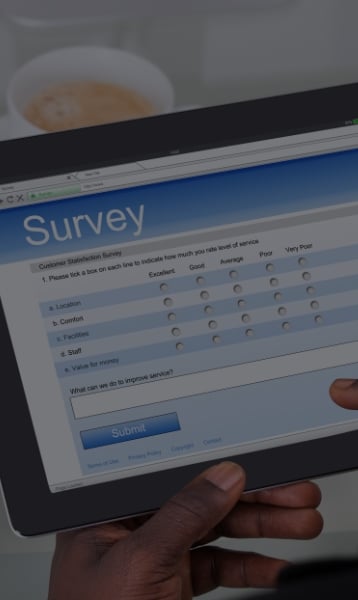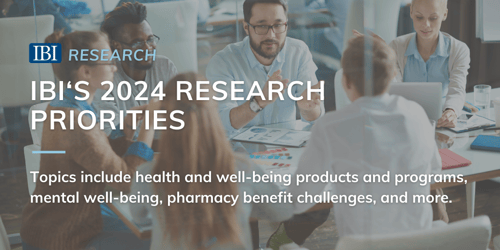The benchmarking portal gives you access to all reports available for STD, LTD, FML & WC.
A Sense of Belonging in the Workplace Leads to Higher Levels of Mental, Physical, and Social Health, According to Integrated Benefits Institute Analysis


Jennifer Santisi
Over the past few years, businesses have invested billions in promoting diversity, equity, and inclusion (DEI) in the workplace but often lack insight into how effective those initiatives are. Health and productivity research non-profit Integrated Benefit Institute (IBI) conducted two surveys to assess the importance of workplace DEI initiatives to employers and to measure engagement, belonging, and employee well-being.
A majority (91%) of employers offer DEI programs, and 80% of employers view their efforts positively. Larger companies, especially those with over 1,000 employees, prioritize DEI initiatives more than smaller businesses. Seven out of ten employers feel their organization pays sufficient attention to increasing DEI.
Employers’ efforts include:
- 37% of employers have a staff member whose main job is to promote DEI at work
- 52% of employers have conducted trainings or meetings on cultural sensitivity
- 54% of employers have policies to ensure that everyone is treated fairly in hiring, pay or promotions
- 32% of employers have employee-sponsored affinity groups (AG) and 22% have employer-sponsored employee resource group (ERG)
IBI’s analysis highlights the importance of fostering a sense of belonging among employees. Employees who perceive support, connectedness, being accepted, respected, and valued are 3.4 times more likely to be physically healthy, 5.2 times more likely to be socially healthy, and 4.4 times more likely to be mentally healthy.
“Belonging is not just a ‘nice to have,’ it’s a must to have in the workplace. IBI’s analysis found that a strong sense of belonging leads to higher work engagement and improved health and well-being. It’s important for organizations to create an environment where everyone feels valued,” said IBI Researcher Carole Bonner.
However, 30% of employees do not feel a sense of belonging at work. Certain groups such as women, Gen Z, racial minorities, LGBTQIA+ individuals, and caregivers, feel excluded more often.
What can employers do to promote a sense of belonging?
IBI’s analysis shows that affinity groups (AG) and employee resource groups (ERGs) are crucial for creating an inclusive environment. The majority of employees surveyed (84%) indicate their AG/ERG has had a positive impact. And those with positive AG/ERG impacts are more likely to have high work engagement scores.
“Employee Resource Groups are the heartbeat of an inclusive workplace, amplifying diverse voices, fostering connections, and driving positive change,” said Jim Huffman, President/CEO of the Integrated Benefits Institute.
###
About Integrated Benefits Institute
The Integrated Benefit Institute’s independent research, industry-leading tools and data resources help companies link health-related programs to the outcomes that maximize the contributions of people to productivity and business performance. Founded in 1995, IBI is a national nonprofit research organization and business association serving more than 1,600 employer and supplier members. For additional information, please visit www.ibiweb.org and follow us on Twitter and LinkedIn.
- December 2024 (1)
- November 2024 (1)
- July 2024 (1)
- June 2024 (1)
- March 2024 (1)
- February 2024 (1)
- January 2024 (1)
- December 2023 (1)
- November 2023 (1)
- August 2023 (1)
- July 2023 (1)
- May 2023 (2)
- February 2023 (2)
- January 2023 (2)
- November 2022 (1)
- October 2022 (1)
- September 2022 (1)
- March 2022 (1)
- February 2022 (1)
- January 2022 (1)
- December 2021 (1)
- September 2021 (1)
- April 2021 (2)
- December 2020 (1)
- October 2020 (1)
- September 2020 (2)
- August 2020 (2)
- July 2020 (1)
- April 2020 (1)
- March 2020 (1)
- November 2019 (1)
- September 2019 (1)
- July 2019 (1)
- June 2019 (2)
- May 2019 (1)
- April 2019 (1)
- February 2019 (1)
- November 2018 (1)
- September 2018 (1)
- August 2018 (1)
- June 2018 (1)
- March 2018 (1)
- March 2017 (1)
- February 2017 (2)
- Absence (1)
- Absence Management (1)
- analytics (1)
- Behavioral Health (1)
- Benchmarking (2)
- Benchmarking Analytics (1)
- Benefit Design (2)
- Benefits + Plan Design (2)
- Blog (1)
- Business Performance (1)
- CDHP (1)
- CFO Survey (2)
- COVID-19 (6)
- Depression (3)
- director (1)
- Disability Leave (7)
- Extreme Weather (2)
- Family + Parental Leave (3)
- FMLA (2)
- Health + Productivity Management (3)
- Healthcare (1)
- Healthcare Costs (2)
- lost time (1)
- Manage Absence (2)
- Medication Adherence (1)
- Mental + Emotional Health (4)
- Mental Health (2)
- new hire (1)
- Parental / Family Leave (1)
- Patient-Centered (1)
- Press Releases (50)
- Preventive Care (1)
- Productivity (3)
- Research (2)
- Research Report (1)
- Return to Work (1)
- Sick Leave (2)
- Telehealth (1)
- Telemedicine (1)
- Worker's Compensation (1)
- Workplace Health Programs (1)



























